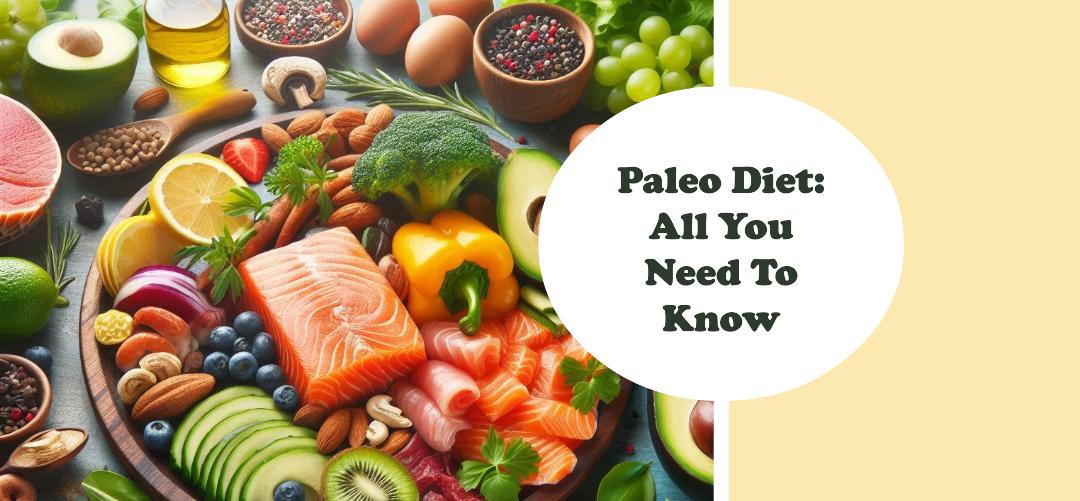Is Almond Milk on Paleo Diet
Almond milk can be included in a Paleo diet due to its plant-based nature and absence of dairy. It is a popular choice for individuals following a Paleo lifestyle as it is made from ground almonds and water, without any added sugars or artificial ingredients.
Almond milk is a suitable alternative to dairy milk for those who are lactose intolerant or have dairy allergies. It is rich in nutrients like vitamin E, calcium, and healthy fats, making it a nutritious addition to a balanced Paleo eating plan.
While some may argue that almonds are not truly Paleo due to their high omega-6 content, almond milk can still be enjoyed in moderation as part of a varied and well-rounded Paleo diet.
Introduction To Almond Milk And Paleo Diet
Almond milk is a popular dairy alternative in the Paleo diet due to its natural ingredients and low carbohydrate content. It is a suitable choice for those following a Paleo lifestyle looking for a dairy-free milk option.
Almond milk has become a popular non-dairy milk alternative in recent years. It is a creamy and nutty-flavored milk that is made by blending almonds and water together. This milk is naturally lactose-free, making it a popular choice for people who are lactose intolerant or have a dairy allergy. Paleo diet, on the other hand, is a popular diet that focuses on consuming whole, unprocessed foods that were available to our ancestors during the Paleolithic era. The diet consists of meat, fish, vegetables, fruits, nuts, and seeds while avoiding grains, legumes, dairy, and processed foods.Origins Of Almond Milk
Almond milk has been around for centuries and was first created in the Middle East. It was a popular alternative to dairy milk, as cows were not readily available in the region. The process of making almond milk involves soaking almonds in water, blending them together, and then straining the mixture to remove the solids.Paleo Diet Fundamentals
The Paleo diet is based on the belief that our bodies are not designed to consume modern-day processed foods. Instead, it focuses on consuming whole, nutrient-dense foods that our ancestors would have eaten. The diet encourages consuming plenty of protein, healthy fats, and fiber while avoiding grains, legumes, dairy, and processed foods. Almond milk is a suitable option for those following the Paleo diet as it is a non-dairy, unprocessed milk alternative. It is also high in vitamin E, magnesium, and healthy fats, making it a nutritious addition to the diet. However, it is important to note that some store-bought almond milk brands may contain added sugars and preservatives, which should be avoided on the Paleo diet. In conclusion, almond milk is a suitable option for those following the Paleo diet. Its origins can be traced back to the Middle East, and it is a popular non-dairy milk alternative. The Paleo diet is based on consuming whole, unprocessed foods, and almond milk fits well into this dietary pattern.Nutritional Profile Of Almond Milk
Almond milk is a popular dairy alternative with a rich nutritional profile, making it a suitable choice for the Paleo diet. It is low in carbs, high in healthy fats, and contains essential vitamins and minerals, supporting a balanced Paleo lifestyle.
Key Vitamins And Minerals
Caloric Content And Macronutrients
The nutritional profile of almond milk makes it a popular choice on the Paleo diet. Almond milk is rich in several key vitamins and minerals. Vitamin E supports skin health and acts as an antioxidant. Calcium is essential for bone health. Magnesium helps regulate muscle and nerve function. Almond milk is low in calories, making it a great option for those on a Paleo diet. It contains approximately 30-50 calories per cup. Macronutrients in almond milk include healthy fats and protein. Unsweetened almond milk is a low-carb option. In conclusion, almond milk offers nutritional benefits that align with the Paleo diet.Almond Milk In The Context Of Paleo
When following the Paleo diet, it’s essential to choose foods that align with the principles of this ancestral eating plan. One such food that often comes into question is almond milk. In this article, we will explore the compatibility of almond milk with Paleo principles and discuss the potential benefits it offers to those following this diet.
Compatibility With Paleo Principles
Almond milk is a popular alternative to dairy milk, making it a suitable choice for those adhering to the Paleo diet. The Paleo diet emphasizes consuming foods that were available to our hunter-gatherer ancestors, excluding processed and refined products. While almond milk is a processed beverage, it can still be considered Paleo-friendly if made with minimal ingredients and without additives.
When selecting almond milk for your Paleo diet, it’s important to read the labels carefully. Look for options that contain only almonds and water, without any added sweeteners, thickeners, or preservatives. Making your own almond milk at home is another excellent option, as you have complete control over the ingredients and can ensure it aligns with your Paleo goals.
Potential Benefits For Paleo Followers
Almond milk offers several potential benefits for those following the Paleo diet. Here are some reasons why it can be a valuable addition to your dietary choices:
- Rich in nutrients: Almond milk is a good source of vitamin E, which acts as an antioxidant in the body. It also contains minerals such as calcium, magnesium, and potassium, which are essential for maintaining overall health.
- Low in carbohydrates: For individuals on a low-carbohydrate Paleo diet, almond milk can be an excellent alternative to dairy milk, as it contains fewer carbs. This can be particularly beneficial for those aiming to manage their blood sugar levels.
- Dairy-free and lactose-free: Almond milk is naturally free of dairy and lactose, making it suitable for individuals with lactose intolerance or dairy allergies. It provides a viable option for those seeking a milk alternative without compromising their dietary restrictions.
In conclusion, almond milk can be a compatible and beneficial choice for individuals following the Paleo diet. By selecting almond milk with minimal ingredients or making your own at home, you can enjoy this dairy-free beverage while staying true to the principles of Paleo.
Homemade Vs. Store-bought Almond Milk
Almond milk is a popular choice for those following a Paleo diet. While homemade almond milk allows for complete control over ingredients, store-bought options offer convenience. The choice ultimately depends on personal preferences and dietary goals.
Almond milk has become a popular alternative to dairy milk, especially for those following the Paleo diet. While store-bought almond milk is readily available, it often contains additives and preservatives that can be harmful to your health. On the other hand, homemade almond milk is a healthier and more natural option, as it contains only almonds and water. In this section, we will discuss the differences between homemade and store-bought almond milk, as well as the ingredients to watch out for in store-bought almond milk.Ingredients To Watch Out For
When purchasing store-bought almond milk, it is important to read the label carefully to ensure that it is Paleo-friendly. Some brands of almond milk contain ingredients that are not allowed on the Paleo diet, such as sugar, carrageenan, and other additives. Carrageenan, in particular, is a common ingredient in store-bought almond milk that has been linked to digestive issues and inflammation. It is best to choose brands that use minimal ingredients and avoid those that contain additives or sweeteners.How To Make Your Own Almond Milk
Making your own almond milk is a simple and cost-effective way to enjoy this Paleo-friendly beverage. To make your own almond milk, you will need raw almonds, water, and a blender. Simply soak the almonds overnight, then blend them with water until smooth. Strain the mixture through a nut milk bag or cheesecloth to remove any solids, and your homemade almond milk is ready to enjoy. Not only is homemade almond milk free from additives and preservatives, but it also allows you to control the sweetness and flavor to your liking. In conclusion, while store-bought almond milk may be convenient, it is important to be mindful of the ingredients it contains. Homemade almond milk is a healthier and more natural option that is easy to make at home. By choosing homemade almond milk or carefully selecting Paleo-friendly brands, you can enjoy the benefits of almond milk while staying true to your Paleo lifestyle.Common Misconceptions About Almond Milk
When it comes to the Paleo diet, there are several misconceptions about whether almond milk is a suitable option. Let’s debunk some of the common myths and facts about almond milk as a dairy alternative.
Myths Vs. Facts
Myth: Almond milk is not Paleo-friendly because it’s not a traditional dairy product.
Fact: While almond milk is not derived from animals, it aligns with the principles of the Paleo diet, as it is free from grains and legumes.
Almond Milk As A Dairy Alternative
Myth: Almond milk lacks the nutritional value of cow’s milk.
Fact: Almond milk is rich in vitamin E, calcium, and healthy fats, making it a nutritious dairy alternative.
Integrating Almond Milk Into A Paleo Diet
Almond milk is a popular alternative to dairy milk for those following a Paleo diet. It is made from ground almonds and water, and is often fortified with vitamins and minerals. This dairy-free milk substitute offers a creamy texture and a mild, nutty flavor, making it a versatile ingredient in a variety of recipes. If you’re considering incorporating almond milk into your Paleo diet, here are some helpful tips and ideas to get you started.
Recipes And Uses
Almond milk can be used in numerous recipes to add a touch of creaminess and nutty flavor. Here are a few ideas:
- Add almond milk to your morning smoothies for a refreshing and nutritious start to the day.
- Use almond milk as a base for homemade Paleo-friendly ice cream or popsicles.
- Replace dairy milk with almond milk in your favorite Paleo pancake or waffle recipe.
- Blend almond milk with fruits and vegetables to create a delicious and wholesome dairy-free soup.
- Use almond milk as a substitute for dairy milk in sauces, dressings, and creamy soups.
Daily Intake Recommendations
When incorporating almond milk into your Paleo diet, it’s important to consider your daily intake. Here are some general recommendations:
| Age Group | Daily Almond Milk Intake |
|---|---|
| Children (1-3 years) | 1/2 to 1 cup |
| Children (4-8 years) | 1 to 1 1/2 cups |
| Children (9-13 years) | 1 1/2 to 2 cups |
| Teens and Adults | 2 to 3 cups |
Remember, these are general guidelines and individual needs may vary. It’s always best to consult with a healthcare professional or nutritionist to determine the right amount of almond milk for your specific dietary requirements.
Comparing Almond Milk To Other Paleo-friendly Drinks
When it comes to Paleo-friendly drinks, almond milk is a popular choice due to its nutty flavor and creamy texture.
Coconut Milk And Other Nut Milks
Coconut milk is another staple in the Paleo diet, offering a rich and tropical taste that complements a variety of dishes.
Adapting To Taste And Nutritional Needs
Almond milk can be easily customized to suit individual preferences and dietary requirements, making it a versatile option for those following the Paleo lifestyle.
Potential Drawbacks Of Almond Milk
Almond milk is a popular choice for those following a Paleo diet, but it does have some potential drawbacks. It’s important to note that almond milk may contain additives and has a lower protein content compared to cow’s milk, which may not align with the Paleo diet’s emphasis on whole, unprocessed foods.
Environmental Concerns
Almond milk production requires substantial water usage.
It can contribute to water scarcity in drought-prone regions.
Allergy Considerations
Almond milk is not suitable for individuals with nut allergies.
May cause allergic reactions in sensitive individuals.
Frequently Asked Questions
Is Almond Milk Allowed On The Paleo Diet?
Yes, almond milk is allowed on the Paleo diet. It is a popular dairy-free alternative rich in nutrients and suitable for the Paleo lifestyle. It is made from almonds and water, making it a great option for those following the Paleo diet.
What Are The Benefits Of Almond Milk On The Paleo Diet?
Almond milk offers several benefits on the Paleo diet. It is a good source of calcium, vitamin E, and healthy fats. It is also low in carbohydrates and contains no lactose or cholesterol, making it suitable for those following the Paleo diet.
How Can Almond Milk Be Used In Paleo Recipes?
Almond milk can be used in various Paleo recipes as a dairy alternative. It can be used in smoothies, coffee, baking, and cooking. It adds a nutty flavor and creamy texture to dishes, making it a versatile ingredient in Paleo cooking.
Conclusion
Incorporating almond milk into a Paleo diet can offer a dairy-free, nutritious alternative. With its low carb and high healthy fat content, almond milk aligns well with the principles of the Paleo diet. While it’s important to consume it in moderation, almond milk can be a valuable addition to a Paleo lifestyle.





